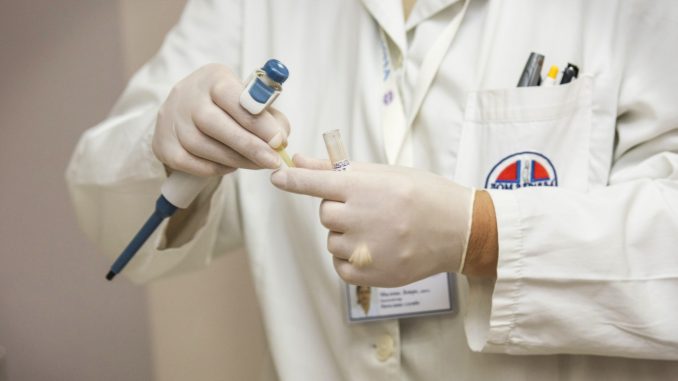
Fatty liver disease can affect anyone – but there are some popular myths that are worth debating and analyzing.
Fatty liver disease, also known as liver steatosis, is a condition characterized by the accumulation of excess fat in the liver. Often the symptoms are easy to ignore or do not manifest at all. Occasionally, the patient diagnosed with steatosis may experience fatigue or pain in the right side of the abdomen. The complications of hepatic steatosis are serious and may include esophageal varices, cirrhosis and liver cancer. Many people are misinformed about fatty liver disease or still believe the myths of the people related to this condition. Here are just a few myths:
Fatty liver disease appears only in alcoholics
Wrong! Whether you consume alcohol or not, you still have the chance of developing the condition called non-alcoholic fatty liver. Those who consume alcohol are indeed more likely to develop liver steatosis if they exceed the recommended daily dose. Experts believe that 2 glasses of wine (125 ml each) per day is a safe limit, in total no more than 14 glasses per week. In other alcohol concentrations, this limit translates to half a pint of beer or a single glass of liquor or strong alcohol.
But there are other risk factors for liver steatosis. A diet high in saturated fat and sugar can cause this condition, in addition to many others. Obese or diabetic people are 30% more likely to develop fatty liver than healthy people.
Other risk factors include family history of hepatic steatosis, increased use of corticosteroid drugs, (less often) pregnancy, and too rapid weight loss. Non-alcoholic fatty liver sometimes develops when the liver works hard to break down fat, in which case it becomes inflamed. Symptoms of steatosis of this kind include nausea, vomiting, and abdominal pain. Untreated, steatosis can lead to permanent scarring on the liver surface and liver failure.
Fatty liver is not a serious condition
The fatty liver, as the name suggests, is characterized by the accumulation of fat in the liver, over 5% of the total organ size. Many people with fatty liver do not even know they have the condition, because the symptoms are subtle or do not manifest at all. But if left untreated, fatty liver can lead to serious consequences.
Fatty liver can increase the risk of more serious conditions, including cirrhosis (liver scarring), liver disease or even liver cancer. This is due to the fact that the accumulation of fat damages the liver cells and causes inflammation.
The liver is the only organ in the body that can be regenerated by replacing damaged old cells with new ones. As the liver tries to remove fat cells, scar tissue accumulates. This hinders the transport of nutrients into the body, a role provided by the liver, and increases blood pressure. Possible complications of liver steatosis include internal bleeding, liver cancer, diabetes, kidney failure, and liver failure.
Fatty liver disease cannot be treated
Actually, hepatic steatosis, both alcoholic and non-alcoholic, is completely reversible. Although there is no specific fatty liver disease drug treatment, certain dietary supplements and a healthy lifestyle can bring significant benefits.
That is why it is important to stop drinking in excess, although it would be best to take a few months off. This will allow the liver cells to regenerate and eliminate the fat molecules, as alcohol also contains hepatotoxins that make it difficult to process.
A balanced diet, devoid of sugar and saturated fats will ensure the return of liver functions. It incorporates several fresh fruits and vegetables in the diet, but also healthy fat sources such as Omega 3 (found in fatty fish, nuts and seeds). Sport is also important, as it will consume lipid reserves from the liver to provide muscle energy.
Various studies show that vitamin E supplements could help detoxify the liver by their anti-inflammatory and antioxidant action. More studies are still needed for a clear verdict, but the data looks promising. You can try a variety of natural ingredients validated by some researchers for liver-protective abilities: artichoke, garlic, green tea, turmeric and spirulina. Whatever natural herbal treatment you choose, talk to your doctor first to make sure that they will not influence the effect of other drug treatments you are following.



Leave a Reply